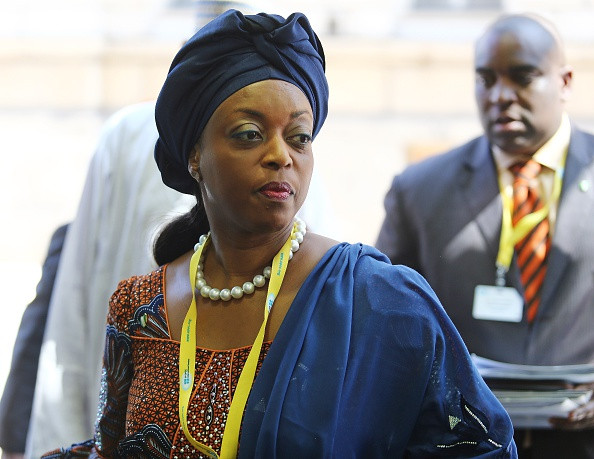Diezani Alison-Madueke: Ex oil minister calls for Nigerians to pray for her in cancer fight

Nigeria's former oil minister Diezani Alison-Madueke, who was arrested in London on suspicion of bribery and money laundering earlier in October, has asked Nigerians to pray for her in support of her alleged fight against cancer. News of the illness was given to the public by her lawyer, Oscar Onwudiwe, who said the former minister was in London to undergo cancer treatment.
"She completed months of chemotherapy just last week and she is scheduled to undergo surgery next week [12-18 October] in London," Onwudiwe said in statement. "The family has been bearing this challenge with prayers and as much grace and fortitude as possible; and would plead with all reasonable Nigerians to pray for her recovery so that she can face these allegations and give account of her stewardship."
He also denied Alison-Madueke was arrested and her passport was seized. He added that the former minister was invited by the police and that reports of her arrest aimed to "defame highly placed people". The lawyer also slammed what he defined "laughable claims" of an alleged purchase of an apartment in Hyde Park by Alison-Madueke.
When contacted by IBTimes UK, the National Crime Agency (NCA) refused to comment on the issue. A spokesperson said: "We only confirm names when we charge people. The people who were arrested last Friday were bailed by the court and have not been charged yet, so we have not confirmed any name. All the information that we are able to make public are on our website." On the day of the arrest, the agency posted on Twitter that it had arrested five people.
NCA's International Corruption Unit arrests 5 people in London for suspected bribery and money laundering offences. http://t.co/8njuvrRTYU
— NationalCrimeAgency (@NCA_UK) October 2, 2015The US said it is considering to apply a visa ban or financial sanctions on the former minister and some of her associates as officials said investigations are ongoing to assess whether Alison-Madueke or her associates laundered money in the country.
Following her arrest, £27,000 found on the former minister was seized and will be held until April 2016. Nigeria's financial crimes unit also sealed one of Alison-Madueke's houses in federal capital Abuja on the night of her arrest, according to Reuters.
The Nigerian government said in a statement that it was aware of the arrest. It added: "All the investigative agencies are working very closely with the British law enforcement. Nigerian authorities are saying for the first time that matters are being handled with seriousness and deep commitment. Nobody wants to give the impression that this government is frivolous and unserious."
When contacted by IBTimes UK, Femi Adesina, spokesperson for Muhammadu Buhari, said the Nigerian president had no comments regarding the case. However, the state house released a statement days after the arrest in which Buhari congratulated the UK and Switzerland for their efforts to repatriate stolen funds belonging to Nigeria.
More on Alison-Madueke and corruption in Nigeria
Alison-Madueke, who became the first female president of the Organization of the Petroleum Exporting Countries (Opec) in 2014, was arrested days after Nigeria's President Muhammadu Buhari appointed himself as the country's oil minister, after he vowed he would recover millions of dollars worth of funds he alleged were stolen during previous administrations.
The leader also alleged some 250,000 barrels of Nigerian crude oil are stolen every day and sold to other countries at higher prices. In order to stop illicit activities in the oil industry, Buhari replaced the whole board of the state-run Nigerian National Petroleum Corporation (NNPC) and temporarily banned some 113 vessels from taking crude oil from Nigerian ports.
While Alison-Madueke was in office, former governor of Nigeria Central Bank Sanusi Lamido Sanusi was suspended after he claimed $20bn (£12bn) of oil revenue "went missing" from state oil company Nigerian National Petroleum Corporation (NNPC).
According to the Premium Times, Alison-Madueke – who has been dubbed "one of the most powerful officials of President Goodluck Jonathan" – admitted to spending $3.5bn (£2.3bn) of Nigeria's money without budgetary approval in February 2014.
During her time in the role, she supported the unpopular attempt by Jonathan in 2012 to end fuel subsidies, arguing it posed a financial burden on the government's finances. The government backtracked on its decision following rallies that caused at least 16 deaths.
© Copyright IBTimes 2025. All rights reserved.




















